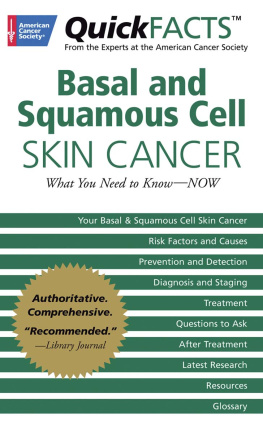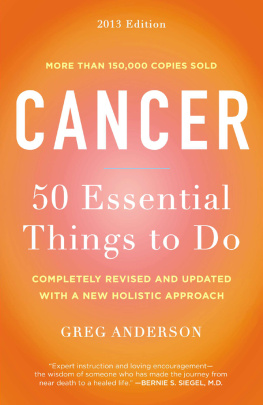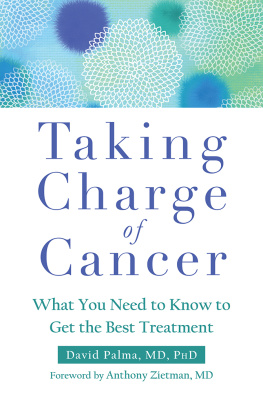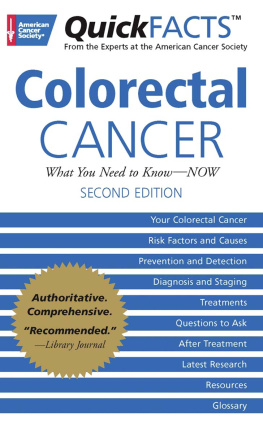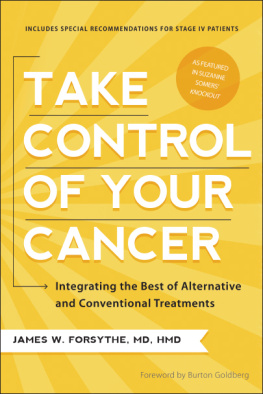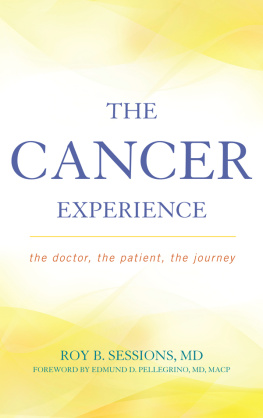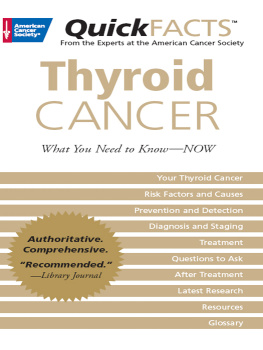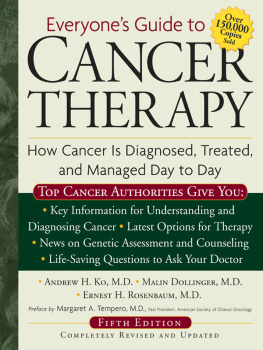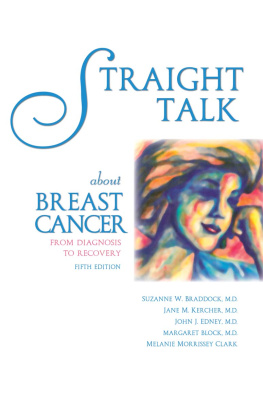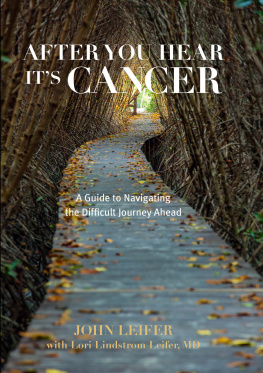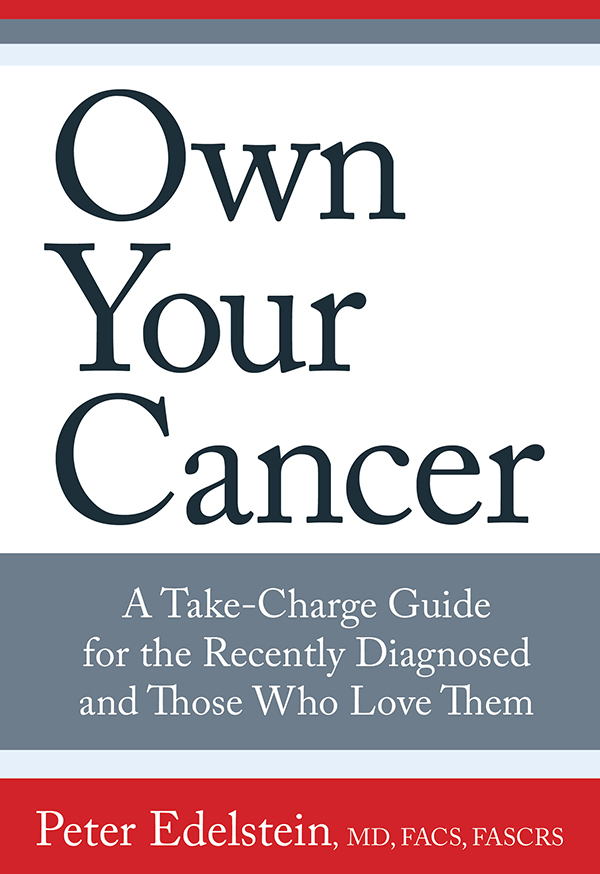Own Your Cancer
Own Your Cancer
A Take-Charge Guide for the Recently Diagnosed and Those Who Love Them
Peter Edelstein, MD, FACS, FASCRS
LYONS PRESS
Guilford, Connecticut
An imprint of Globe Pequot Press
Copyright 2014 by Peter Edelstein, MD
ALL RIGHTS RESERVED. No part of this book may be reproduced or transmitted in any form by any means, electronic or mechanical, including photocopying and recording, or by any information storage and retrieval system, except as may be expressly permitted in writing from the publisher. Requests for permission should be addressed to Globe Pequot Press, Attn: Rights and Permissions Department, P.O. Box 480, Guilford, CT 06437.
Lyons Press is an imprint of Globe Pequot Press.
Text design and layout: Sue Murray
Project editor: Ellen Urban
Library of Congress Cataloging-in-Publication Data
Edelstein, Peter S.
Own your cancer : a take-charge guide for the recently diagnosed and
those who love them / Peter Edelstein, MD, FACS, FASCRS.
pages cm
eISBN 978-1-4930-0806-3
1. CancerPopular works. 2. CancerPatientsDecision making. I.
Title.
RC263.E33 2014
616.994dc23
2013050243
Thanks, Helen.
Thor
Contents
Why Did I Buy This Book?
I hate books that begin with definitions. But since Im not reading this book, tough luck for you (not the worst tough luck youve had recently, I would bet).
Definitive. It means conclusive, ultimate, from a recognized expert authority. Dont believe me? Look it up online (thats what I did). I had never heard the word definitive prior to entering medical school (if I did, it went unregistered, as I was watching football or dreaming of getting to second base with my college girlfriend). Since then, Ive heard definitive a thousand times. In the pathology lab, in the operating room, in the oncology clinic. Half of the times Ive heard definitive, it has come from my own mouth. Definitive is to medicine as milk is to Capn Crunch cereal. They go together. Especially for physicians whose passion is caring for people with cancer. Given all of the unknowns, challenges, and labile emotions that are part and parcel of caring for people with cancer and their families, we physicians desperately seek the comfort of things that are definitive. We relish X-rays that are definitive in clearly demonstrating no evidence of cancer spread to the lungs. Were grateful for the definitive pathology report that states in no uncertain terms, prostate cancer cells are clearly identified. And we especially like to take definitive action. No Gee, Im really not sure if you should receive any chemotherapy for us. Definitive. I am quite certain that it is clearly appropriate for you to undergo chemotherapy treatment. Definitive is confident. Definitive is sure. Definitive is safe. As cancer docs, we love definitive.
So now you know what definitive means and the important role definitive plays in oncology (cancer medicine).
Now for the bad news: This book is not meant to give you definitive medical advice. Sorry. I cant give you definitive medical advice. No, not because my publishers lawyer is standing right behind me vigorously shaking her head (although she is). I cant give you definitive medical advice because I dont know you. Just like I cant tell you where to go for a great meal in Philadelphia. I dont know you (or Philadelphia, for that matter). I dont know if you like Chinese food. I dont know what type of cancer you have or your cancer stage. I dont know how old you are. I have no idea how much you smoke. I dont have a clue if you have high blood pressure, low blood sugar, or a tendency toward blood clots. Each of you is different from everyone else, both in medical terms (your vital signs, laboratory values, X-rays) and as human beings (husbands and wives, children and parents, hard workers and slackers). Dishing out definitive medical advice requires that I know you as a person with cancer and as a person period. And theres not enough space in my living room for all of you, so dont expect definitive. Got it?
That said, Ive spent long hours, often stretching into days and nights without interruption, caring for people with cancer. When you spend that much time hanging out with a specific group of people, you hear things, you see things, you pick up things. Themes, really. Themes shared among a group of unique individuals who are experiencing a common set of challenges. Youre privy to emotional conversations between your patients and their spouses. You exchange an understanding look just before your patients drift off into an anesthesia-induced sleep, just before you head out to the operating room sink to scrub for surgery. You literally feel the stress in the room as your patients and their children struggle to make small talk, impeded by unspoken words and fears. Common themes shared by unique individuals as they, and now you, attempt to navigate their way through the unfamiliar, life-altering, life-threatening world of cancer.
Okay, enough. This isnt a Robert Frost poem. The point is this: There is now knowledge that must be mastered, issues that must be raised and dissected, and decisions that must be made, all of which can critically impact your new life as a person with cancer. Knowledge and issues and decisions that are not intuitive. That you may not appreciate or understand without some (or even a great deal of) guidance. Many of you who are newly diagnosed with cancer dont even recognize what these key action items are, let alone understand how to approach them. Thats not your fault. Hey, I can remove your large intestine without a hitch, but I have no clue how to change the brake pads on my Toyota, which is also pretty damn important. Thus, many newly diagnosed cancer patients seem to enter into a trance, simply floating right past all of the critical knowledge and issues and decisions that will ultimately determine both their quality of life and their survival, slipping down the stream without a moments pause, led without question or hesitation by doctors and nurses and technicians and the system. Dont get me wrong, I can see why this happens. Your life just drove into a brick wall, or, to use my previous analogy, your life is headed full-speed into a brick wall and you need new brake pads, and you (like me) have no clue how to replace your old, worn ones. Every single aspect of your life changed in an instant, with three little words: You have cancer.
To describe how you must feel as overwhelming is akin to describing the Grand Canyon as kinda wide. Overwhelming for you, above all. But also damn overwhelming for your spouse. Your family. Your friends. Cancer. The C Word. That was one big shitload to get hit with. So youre already in a daze, and everyones feeling incredible pressure to get going with your treatment, but neither you nor your wife or husband nor your family nor your friends knows what the hell that means... and there are guides aplenty on this tour. Doctors, nurses, therapists, technicians. The system is actually set up to push you down the assembly line without you making a peep or raising your hand, to drive your care with definitive medical advice. Hell, your input really isnt needed. They say you should get radiation therapy... get radiation therapy! They dont suggest that you speak with your wife about your potentially dying, so dont speak with your wife about it! They say youre Stage III. What does it matter if you dont know what that means, as long as they do! (I know... if I laid my sarcasm on any thicker, youd be wiping it off the page. Ive never been accused of being subtle.)


